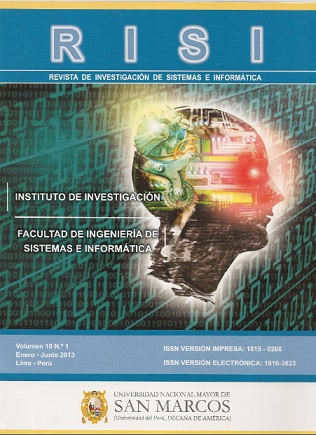A Genetic Algarithm For Fraud Detectian E/ectranic Debit Cards In Peru
DOI:
https://doi.org/10.15381/risi.v10i1.5717Keywords:
Electronic commerce, genetic algorithms, fraud electronicAbstract
The great problem of the bank is to detect fraudulent transactions which are scattered with genuine transactions. The proposed solutions are not sufficient to detect these illegal operations precisely because they are aimed at different Peruvian markets. Consequently, we reviewed the main con tributions in this area, such as Dempster-Shafer theory and Bayesian learning, Fuzzy Darwinian, etc. presents the modeling and design of a genetic algorithm to obtain more representative rules cardholder purchase within the universe of transactional data collected from a Peruvian bank. From experimental evidence obtained an accuracy of 95.5% in the interne! channel 95.8% for the point of sale. Finally, it was concluded that the use of evolutionary algorithms strategy gol an acceptable accuracy in prediction.Downloads
Downloads
Published
Issue
Section
License
Copyright (c) 2013 Luis Enrique Lavado Napaico

This work is licensed under a Creative Commons Attribution-NonCommercial-ShareAlike 4.0 International License.
AUTHORS RETAIN THEIR RIGHTS:
a. Authors retain their trade mark rights and patent, and also on any process or procedure described in the article.
b. Authors retain their right to share, copy, distribute, perform and publicly communicate their article (eg, to place their article in an institutional repository or publish it in a book), with an acknowledgment of its initial publication in the Revista de investigación de Sistemas e Informática.
c. Authors retain theirs right to make a subsequent publication of their work, to use the article or any part thereof (eg a compilation of his papers, lecture notes, thesis, or a book), always indicating its initial publication in the Revista de investigación de Sistemas e Informática (the originator of the work, journal, volume, number and date).


